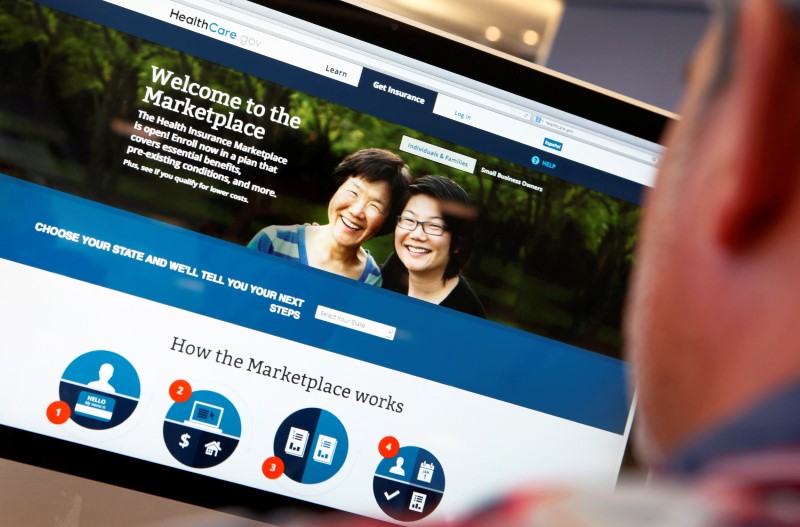By Dan Levine and Lawrence Hurley
SAN FRANCISCO/WASHINGTON (Reuters) - A U.S. judge on Wednesday refused to block President Donald Trump's decision to end subsidy payments to health insurers under Obamacare, handing Trump a victory against Democratic attorneys general who have regularly challenged the president's policies in court.
U.S. District Judge Vince Chhabria in San Francisco said the federal government did not have to make the payments while litigation over the subsidies unfolds.
Chhabria, appointed by former Democratic President Barack Obama, wrote that although the case appeared to be a close call, "it appears initially that the Trump administration has the stronger legal argument."
The Trump administration this month terminated the payments to the insurers, which help cover medical expenses for low-income Americans, as part of several moves to dismantle Obama's signature healthcare law formally known as the Affordable Care Act.
Democratic attorneys general have repeatedly opposed Trump in court this year over immigration, the environment and healthcare.
After Trump's decision to end the insurance subsidies, 18 states and the District of Columbia asked for an immediate order halting Trump's move while the case is being litigated. They argued that terminating the payments harmed customers by raising insurance rates.
In his ruling, Chhabria said the kind of emergency order requested by the states was not necessary.
"The truth is that most state regulators have devised responses that give millions of lower-income people better health coverage options than they would otherwise have had," Chhabria said.
"This is true in almost all the states joining this lawsuit," the judge added.
U.S. Justice Department spokeswoman Lauren Ehrsam said the subsidy payments usurped Congress' spending power and that the department was pleased with Chhabria's ruling.
BIPARTISAN PROPOSAL
California Attorney General Xavier Becerra, who is leading the lawsuit, said in a statement that Trump's decision undermined payments that keep healthcare affordable.
"Without an emergency order halting the Trump action, swift action in this litigation becomes even more compelling," he said.
U.S. Senator Patty Murray, a Washington state Democrat, said the ruling "only makes it more critical" that the Senate pass a bipartisan agreement she co-authored, which would authorize the subsidies.
Earlier on Wednesday, the nonpartisan Congressional Budget Office found that the proposal would cut the U.S. deficit by $3.8 billion over the next decade.
The subsidies were amounting to nearly $600 million a month. They were due to cost $7 billion this year and were estimated to grow to $10 billion for 2018, according to congressional analysts.
With the beginning of enrollment for 2018 insurance policies on Obamacare exchanges set for Nov. 1, Chhabria suggested that the states focus on communicating the message that they have devised a response to the subsidy cuts that prevents harm to a large number of people.
"If the states are so concerned that people will be scared away from the exchanges by the thought of higher premiums, perhaps they should stop yelling about higher premiums," Chhabria wrote.
Insurers say they do not profit from the subsidies under the Affordable Care Act, but pass them on directly to consumers to reduce deductibles, co-payments and other out-of-pocket medical expenses for low-income people.

Premiums for Obamacare "silver" plans, generally the most popular type of health insurance plan on the individual health insurance market, rose 34 percent on average for 2018, according to an analysis published on Wednesday by Avalere Health, a research and consulting firm.